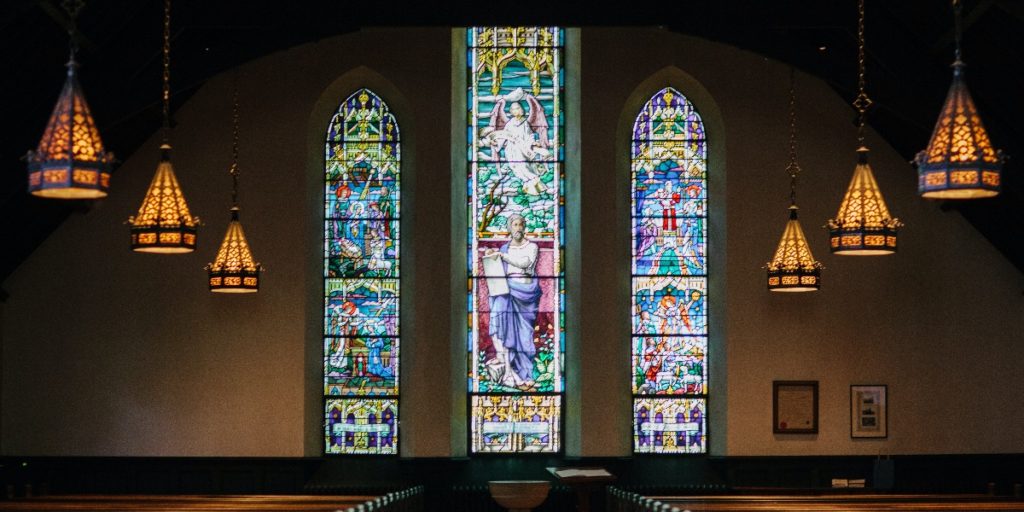
The Woman at the Well: Its Significance and What We Can Learn
In John 4, Jesus meets a woman at a well. This interaction has captivated the hearts of many Bible readers. But what is the significance of the story? What can we learn from this monumental encounter?
What is the significance of the woman at the well Bible story? The encounter of Jesus and the Samaritan woman at the well was not a random meeting. It was planned by God and it depicts Jesus’ mercy and love for us. Desperate for a satisfying life and unending grace, the woman at the well is forever changed by Jesus’ love for her. She uses her story to tell others about the living water found in Jesus.
The Samaritan Woman
After traveling all day, with the sun was at its peak, it’s no wonder that Jesus stopped to rest by the well. It was surprising, however, to find a woman there in the heat of the day.
And he had to pass through Samaria. So he came to a town of Samaria called Sychar, near the field that Jacob had given to his son Joseph. Jacob’s well was there; so Jesus, wearied as he was from his journey, was sitting beside the well. It was about the sixth hour. A woman from Samaria came to draw water. Jesus said to her, “Give me a drink.” (For his disciples had gone away into the city to buy food.) The Samaritan woman said to him, “How is it that you, a Jew, ask for a drink from me, a woman of Samaria?” (For Jews have no dealings with Samaritans.) —John 4:4-10
Usually, women would go together in groups to get water for their families and animals later in the day, when it was cooler. But we see this woman alone, at the well in the middle of the day, when the temps were their hottest. From this, we can speculate that the woman was an outcast, or even despised by the other women in town.
Stranger than this even is the fact that in the culture of Jesus’ time, men rarely, if ever, spoke to women, and much less Samaritan women.
Remember the parable of the good Samaritan? A man lies dying on the side of the road and the only person willing to help him was a Samaritan. Not the Jewish leader that passed by, not the priest, the Samaritan.
The thing about this parable is that it was so shocking to the Jewish people that a Samaritan would be the good guy in the story. In the same way, this Samaritan woman was the last person any Jew would want to talk to. But Jesus, a Jewish man, did talk to her.
It’s comforting that Jesus chooses to love the least lovable people, and He chooses to use the least likely characters.

Living Water
Jesus answered her, “If you knew the gift of God, and who it is that is saying to you, ‘Give me a drink,’ you would have asked him, and he would have given you living water.” —John 4:10
We know that this living water is the salvation Jesus gives to us since He says that it’s a gift from God. The woman at the well was picking up on this, and I’m sure was wondering if there was more to Jesus, maybe even more to her life.
When we know who it is that is offering living water to us, when we know that it is the generous and kind Jesus, we will ask Him and He will give it to us freely. The Samaritan woman, however, did not necessarily know who Jesus was. To gauge exactly what authority this man might have, or who he might be, she compares the words of Jesus to the commands that had been passed down from Jacob, the greatest figure of faith she knew of.
The woman said to him, “Sir, you have nothing to draw water with, and the well is deep. Where do you get that living water? Are you greater than our father Jacob? He gave us the well and drank from it himself, as did his sons and his livestock.” Jesus said to her, “Everyone who drinks of this water will be thirsty again, but whoever drinks of the water that I will give him will never be thirsty again. The water that I will give him will become in him a spring of water welling up to eternal life.” The woman said to him, “Sir, give me this water, so that I will not be thirsty or have to come here to draw water.” —John 4:11-15
After the comparison, Jesus cuts right to the chase, stating that even the prophets and people from the old covenant can’t fulfill or satisfy us. Jesus is hinting at the new covenant, the one where we can trust in Him and be completely satisfied, both in eternity and here on earth.

Call Your Husband
Jesus said to her, “Go, call your husband, and come here.” The woman answered him, “I have no husband.” Jesus said to her, “You are right in saying, ‘I have no husband’; for you have had five husbands, and the one you now have is not your husband. What you have said is true.” —John 4:16-18
Wow, Jesus brought up the most uncomfortable thing.
Without any knowledge of who Jesus is, it sounds like Jesus is taunting her or taking on an accusatory tone. But if you know Jesus, you’d know that He was speaking gently and calmly, with a tone that assures her she’s not being accused.
Jesus is trying to get to her heart, to the bottom of what she needs, which is love and forgiveness.
But even if Jesus wanted to get to the bottom of how she was feeling, couldn’t He have done that in a more considerate way, instead of speaking as if He were condemning her?
Well, He brought this up for a couple of reasons. First, Jesus wants her to know that He is who He says He is later on in verse 26. He’s not some stalker who’s been hiding behind a bush watching her life story, He’s the Messiah, the Son of God.
He’s all powerful and knows everything about her yet still accepts her.
Second, Jesus knew that when He presents the promise of God to her, the promise that she can have this living water, the first thing she will think of is how all of her sins disqualify her.
You know the feeling of condemnation, when the devil comes a-roaming around, whispering the lie that we could never be accepted for who we are or what we’ve done. Imagine if Jesus had ignored this part of her story and not proceeded with grace.
The woman would’ve been crushed by the weight of shame and guilt, and maybe at this point, she still is because she immediately changes the subject.
The woman said, ‘Sir, I perceive that you are a prophet. Our fathers worshiped on this mountain, but you say that in Jerusalem is the place where people ought to worship. —John 4:19-20
She doesn’t know exactly who Jesus is yet, but she knows she can trust that what He’s saying is from God. And if it’s God who can answer her questions through Jesus, then why wouldn’t she ask Him anything she wanted to know?
I find it interesting that she brings up worship first. I’m sure she was confused about this God she didn’t know yet, this God that she maybe wanted to worship but didn’t know how to.
If Jerusalem was the only place to worship this God, the woman at the well knew she wouldn’t be able to have a part with Him since she was a Samaritan.
She was already despised enough in her home town, imagine going to a place where no one accepted you because of your nationality and trying to worship freely there. She couldn’t catch a break, it seemed. Except with Jesus, who did accept her.

Worship in Truth and Spirit
Though she did changed the subject, Jesus doesn’t get mad at the woman at the well or condemn her, instead He answers her question with as much passion as his first statements.
Jesus said to her, “Woman, believe me, the hour is coming when neither on this mountain nor in Jerusalem will you worship the Father. You worship what you do not know; we worship what we know, for salvation is from the Jews. But the hour is coming, and is now here, when the true worshipers will worship the Father in spirit and truth, for the Father is seeking such people to worship him. God is spirit, and those who worship him must worship in spirit and truth.” —John 4:21-25
Because of Jesus, we don’t have to go to a specific place to worship. We don’t even have to be a Jew. This is epic news for the Samaritan woman, who otherwise would have no part of the redemptive story.
To worship in spirit means that we can worship God at anytime, anywhere, because we have the Holy Spirit with us, God’s very presence. Worship doesn’t have to be solely in a tabernacle or temple anymore.
The same Spirit that resided in the temple in the Holy of Holies, is the same Spirit that chooses to live in us. We have the Holy Spirit and because of that, we can experience the love of the Father without all of the rules of the Old Testament.
Another interesting thing to point out is how Jesus said “spirit and truth”. Why not spirit and peace? Or spirit and joy?
Going back to the feeling of shame or guilt the Samaritan woman was probably feeling, Jesus knew that it wasn’t cleared up just yet. For her to be able to worship in spirit and truth meant that she could be free to not hide anything from God.
She didn’t have to lie and cover up her sin and shame. She could be honest with God and still know that she is accepted and loved, if only she accepts the free gift of God’s grace, which Jesus is extending.
Still, she’s hesitant to accept this, until Jesus actually says that He is in fact the Messiah.
The woman said to him, “I know that Messiah is coming (he who is called Christ). When he comes, he will tell us all things.” Jesus said to her, “I who speak to you am he.” —John 4:25-26
I can feel the goosebumps that the Samaritan woman most likely experienced. Those words are not without extreme power, and they are undeniably special.
Throughout the gospels, it’s rare to find Jesus declaring exactly who He is. In fact, there were multiple times the disciples tried to drag it out of Him, and yet the Samaritan woman was worth telling this incredible truth.

Can This Be the Christ?
Just then his disciples came back. They marveled that he was talking with a woman, but no one said, “What do you seek?” or, “Why are you talking with her?” So the woman left her water jar and went away into town and said to the people, “Come, see a man who told me all that I ever did. Can this be the Christ?” They went out of the town and were coming to him. —John 4:27-30
The disciples did not understand what Jesus was doing. In later chapters, it takes many miracles before the disciples even declare Jesus as Lord, the Messiah.
The Samaritan woman didn’t need long though, she knew that the change of love and grace and worship was bubbling up in her heart. She was experiencing the living water welling up inside of her to eternal life. What an incredible feeling.
You can have that too. Jesus is more than just a story on the page, Jesus is more than a faint Hebrew promise. It’s not unattainable for outsiders like us and the Samaritan woman. Jesus is here, and He is near to us. If you haven’t experienced His presence yet just ask Him to show you who He is and what He’s done for you.
The woman at the well knew as you do now, that there is more. And she didn’t want to wait until heaven to find out how good Jesus is.
You don’t have to wait until heaven to know how good Jesus is. And you don’t have to wait to tell others about Him too.
Many Samaritans Believe
Later on in this story, we read that the woman ran back to Jesus, bringing people from her town with her, seeking to introduce them to Jesus.
Many Samaritans from that town believed in him because of the woman’s testimony, “He told me all that I ever did.” So when the Samaritans came to him, they asked him to stay with them, and he stayed there two days. And many more believed because of his word. They said to the woman, “It is no longer because of what you said that we believe, for we have heard for ourselves, and we know that this is indeed the Savior of the world.” —John 4:39-42
It was the woman’s testimony that lead her town to Jesus, but ultimately it was Jesus’ love that changed them and convinced them that He was and is the Savior of the World.
If you believe this passage today, find the courage to share it with your town, your friends, and family, so that everyone will be able to worship God in spirit and truth.
Forever Changed
When we meet Jesus and are transformed by His love, it’s not just something we keep to ourselves. We are forever changed. Through His Holy Spirit, He will pour out the living water into our hearts, His goodness overflowing in us with His promises. His promise to the Jews was to bring salvation, and He extended that to the Samaritan woman and to us as well.
We don’t have to wait to enter the temple, we don’t have to wait until the next sacrifice, we don’t have to wait to enter into His presence and to know how truly good He is. This is life with Jesus, this is truth and freedom.
Because of this, let’s rejoice in Jesus’ gift to us of His satisfying love, grace, and presence, worshiping in the spirit and in truth.
We can run with freedom and let others know of the amazing things He’s done for us.
Featured image courtesy of inspired2go.org.
Kenneth E. Ortiz (Th.M.) is Lead Pastor of Horizon City Church and Ph.D. Candidate at Midwestern Seminary. He has 15+ years of vocational ministry experience. Kenneth previously served as a professor at Bethlehem College and adjunct faculty at Spurgeon College. Kenneth lives in Minneola, FL with his wife Malaina, they have three kids.


